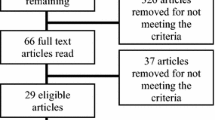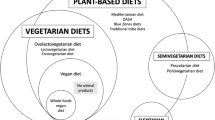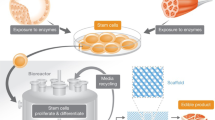Abstract
Nowadays, genetically modified foods find application in many sectors from livestock to health and especially in agriculture. From Islamic law perspective, the critical point is to know whether the modern biotechnology is properly used in genetically modified food production and whether these products are suitable for human health and whether all production stages are halal. Another important point is the uncertainty that may arise during the production and whether the precaution can be taken. The Islamic law methodology is of great importance in understanding and resolving the above issues in line with religious values and scientific data together. This paper outlines how the Islamic law methodology can be applied to the issues of genetically modified goods in an interdisciplinary framework, by combining the pillars of Islam and scientific knowledge, and thus promoting what is morally, legally and economically beneficial for halal nutrition and life, for all humanity, Muslims and non-Muslims. We reach the conclusion that there are no definitive provisions set by Islamic law about these issues but they can be resolved within the scope of maslahah and maqasid, which is to achieve the righteous and eliminate the harmful.
Similar content being viewed by others
References
Ahmed b. Hanbel1(992) el-Müsned. Istanbul: Çağrı Publishing House.
Alkış, A. (2018). Evaluation of genetically modified organisms (GMOs) in terms of Islamic Law (in Turkish). Çanakkale Onsekiz Mart University, Journal of the Faculty of Theology, 13, 31–54.
Âmidî, S. (1985). el-İhkâm fî Usûli’l-Ahkâm. Beirut: Publisher not available.
Apaydın H. Yunus (2000) Ijtihad (in Turkish). Diyanet Islamic Encyclopedia 21: 432–445. Istanbul: Türkiye Diyanet Vakfı Publications.
Âşûr, I., & Tâhir, M. (2001). Makâsıdü’ş-Şerîati’l-İslâmiyye. Jordan: Dâru’n-Nefâis.
Atar, F. (1992). Fıkıh Usûlü. İstanbul: Marmara University, Faculty of Theology Publications.
Ayengin Tevhit (2012) Legal Dynamism and Debates on the Appropriateness of Resolutions (in Turkish). Marife. Winter 156–158.
Başaran Merve (2016) What is the Genetically Modified Food? (in Turkish). TOBB ETÜ Faculty of Medicine Publication. Ankara. https://hastane.etu.edu.tr/bulletin/640-genetigi-degistirilmis-besin-nedir(Accesed: 20 March 2020).
Bilmen, Ö. N. (1990). Hukuk-ı İslamiyye ve Istılahatı Fıkhiyye Kamusu. Istanbul: Bilmen Printing and Publishing House.
Boynukalın Ertuğrul (2003) Makâsıdu’ş-Şerîa”, Diyanet Islam Encyclopedia. Ankara: Diyanet Foundation of Turkey Publications. 27: 423–427.
Buhârî, Muhammed b. İsmail b. İbrahim.1981. Sahîhu’l-Buhârî. Istanbul: Çağrı Publishing House.
Bûtî, M., & Sa’îd Ramazan. (1986). Davâbıtu’l-Maslaha fi’ş-Şerîati’l-İslâmiyye. Beirut: Publisher not available.
Çelik, V., & Turgut-Balık, D. (2007). Genetically modified organisms (in Turkish). Erciyes University, Journal of Science Institute, 23, 13–23.
Cüveynî, A., & b. Abdullah b. Yusuf. . (1997). al-Burhan. Beirut: Dâru’l-Kütübi’l-İlmiyye.
Dâvûd, E. (1982). Sünen. Istanbul: Çağrı Publications.
Demir, A., Seyis, F., & Kurt, O. (2006). Genetically modified organisms: I. plants (in Turkish). Ondokuz Mayıs University, Journal of Faculty of Agriculture, 21, 249–260.
Dirînî, F. (1988). Dirâsât ve Buhûs fi’l-Fikri’l-İslâmî el-Muâsır. Beirut: Publisher not available.
Dönmez İbrahim Kâfi (2003) Maslahah (in Turkish). Diyanet Islamic Encyclopedia. Ankara: Diyanet Foundation of Turkey Publications. 28: 79–94.
Dönmez, İK. (2008). Resolution and resolution methods in Islamic law (in Turkish). European Islamic University. Journal of Islamic Studies, 1, 99–111.
Dreezens, E., Martijn, C., Tenbült, P., Kok, G., & de Vries, N. K. (2005). Food and values: An examination of values underlying attitudes toward genetically modified and organically grown food products. Appetite, 44, 115–122.
Ergin, I., & Karababa, A. O. (2011). Genetically modified organisms: Why is it hard to prove its harm to health? Problems and tips for risk. A compilation (in Turkish). Journal of Turkish Public Health, 9, 113–122.
Erol, A. E. (2017). The change and development methodology of Islamic Law in the context of Maslahah (in Turkish). In A. Erol (Ed.), Maslahah in Islamic Sciences (pp. 13–39). Ankara: Gece Kitaplığı Publishing House.
Erol, Ayten. 2018. A General Consideration of Halal Products and Services in terms of Halal and Haram Concepts Islamic Law. In Halal Products and Services I (in Turkish). ed. Adem Yıldırım. Ankara: Grafiker Publishing.
Gazzâlî, E. H., & Muhammed b. Muhammed. . (1993). el-Müstesfâ min İlmi’l-Usûl. Beirut: Publiher not available.
Günay H. Mehmet (2012) Religious Provision of Hormone and GMO Products (in Turkish). Current Religious Issues Consultation Meeting IV: Halâl Food. 26–28 November 2011 Afyonkarahisar. Ankara: Directorate of Religious Affairs Publications.
Günay, H. M., & Özdemir, M. (2016). Products that are genetically modified from an Islamic perspective (in Turkish). International Journal of Social Research, 9, 1004–1022.
Hallâf, A. (2001). İlmu Usûli’l-Fıkh. Egypt: Mektebetü’d-Da’veti’l-İslâmiyye. Şebâbü’l-Ezher.
Ibn Abdisselâm, İzzüddîn Abdilazîz. Puplication date not available. el-Kavâidu’l-Kübra (Kavâidü’l-Ahkâm fi Mesâlihi’l-Enâm). Damascus: Daru’l-Kalem.
Ibn Âşûr, Muhammed Tâhir (2013) Islamic Jurisprudence, Purpose Problem. Translators: Mehmet Erdogan, Vecdi Akyüz. Istanbul: Ragbet Publications.
Ibnu’l-Kayyim el-Cevziyye, Muhammed b. Ebî Bekr (1991) İ‘lâmu’l-Muvakkıîn. Beirut: Publisher not available.
Ibnü’l-Hümâm, Kemâlüddîn Muhammed b. Abdilvâhid b. Abdilhamîd. Fethu’l- Kadîr, Beirut: Dârü’s-Sadr Publications.
Karaman, H. (1991). Mukayeseli İslâm Hukuku. Istanbul: Nesil Yayınları.
Kâsânî, Alauddîn Ebû Bekir b. Mes'ûd b. Ahmed (1974) Kitabu Bedâiu's-Sanâî Tertîbü'ş-Şerâî, Beirut: Dâru'l-Kitâbi'l-Arabî Puplications.
Kashim, M. I., Mohd, A., & Husni, A. M. (2017). Maqasid-i shariah in modern biotechnology concerning food products. International Journal of Islamic Thought, 12, 27–39.
Koca Ferhat (1996) Maslahat-ı Mursele in Islamic Law and Assessment of the Views of Necmeddin et-Tûfî’nin on the Işssue. ILAM Journal. Volume: 1. Number: 1 (January-June). 109–110.
Kudâme, I., Abdullah, E. M. M., & b. Ahmed b. Muhammed. . (1985). el- Muğnî. Beirut: Dârü’l-Fikr Publications.
Kudâme, I., & Muvaffakuddîn. . (2003). Ravdatü’n-Nâzır ve Cünnetü’l-Münâzır. Riyâd: Publisher not available.
Kurt, H. (2017). Food problem of humanity and biological diversity (in Turkish). Afyon Kocatepe University Journal of Faculty of Economics and Administrative Sciences, 19, 13–26.
MABICandISAAA (2012) International Workshop for Islamic Scholarson Agribiotechnology: Shariah Compliance. Georgetown, Penang, Malaysia. 1–2 December 2010. Jointly published by Malaysia Biotechnology Information Center (MABIC) and International ServicefortheAcquisitionofAgri-biotechApplications(ISAAA). https://www.isaaa.org/resources/publications/reports/shariah_compliance/download/International%20Workshop%20for%20Islamic%20Scholars%20on%20Agribiotechnology- Shariah%20Compliance.pdf. Accessed 20 June 2019.
Mâce, I., Muhammed, E. A., & b. Yezîd el-Kazvinî. . (1981). es-Sünen. Istanbul: Çağrı Publications.
Mahmesânî, S. R. (2009). Philosophy of Islamic Jurisprudence (in Arabic: Felsefetü’t- Teşrî’ fi’l-Islâm and traslated to Turkish). Ankara: Diyanet Foundation of Turkey publishing.
Müslim, I., & el-Haccâc el-Kuşeyrî. . (1981). Sahîhu Müslim (el-Câmiu’s-Sahih). Istanbul: Çağrı Publications.
Nüceym, I., & Zeynüddîn b. İbrâhîm b. Muhammed el-Mısrî. . (1983). el-Eşbâh ve’n-Nezâir. Damascus: Publisher not available.
Paçacı, İ. (2007). In Point of Islam, Evaluation of Studies Stem Cell and Cloning (in Turkish). Usûl-Islamic Studies., 7, 35–60.
Paçacı, İbrahim. 2018. Islam and Change (in Turkish). http://ibrahimpacaci.com.tr/index.php/makaleler/5-islam-ve-degisim. Accessed 20 January 2018.
Paşa, A. C. (2019). Mecelle-i Ahkâm-ı Adliyye. Istanbul: Presidency of Religious Affairs Publications.
Pekcan, A. (2002). The Importance of Maqâsıdu’s-Sharia Knowledge (in Turkish). Marife, 2, 226–227.
Rüşd, I., & el-Hafîd, Ebü’l-Velîd Muhammed b. Ahmed b. Muhammed. . (1985). Bidâyetü’l- Müctehid ve Nihayetü’l-Muktesıd. Istanbul: Kahraman Publications.
Şa‘bân, Zekiyyüddîn. 2001. Principles of Islamic Legal Science (Usûlü’l-Fıkh). Translated with added notes into Turkish by Ibrahim Kâfi Dönmez. Ankara: Diyanet Foundation of Turkey.
Şahin, Osman. 2006. Zerâ-i and Its Applications in Islamic Law Methodology (in Turkish). Journal of Islamic Law Researches. Konya: Mehir Foundation Publications 7: 209–244.
Şâtıbî, İ, & b. Mûsâ. . (1997). el-Muvâfakât. Saudi Arabia: Dâru İbn Affân.
Şen, S., & Altınkaynak, S. (2014). Genetically Modified Foods and Potential Health Risks (in Turkish). Sakarya University, Journal of Science, 18, 31–38.
Serahsî, E. B., & Muhammed b. Ahmed b. Ebi Sehl. . (1983). Kitabu’l-Mebsut. Istanbul: Çağrı Puplishing House.
Şîrâzî, E. İ, İbrâhim, C., & b. Ali b. Yusuf. . (1959). el-Mühezzeb fî Fıkhi’l-İmam eş-Şâfiî, 2e. Cairo: Mustafa el-Babî el-Halebî.
Telkenaroğlu, M. R. (2008). Absolute Rules Based on the Maqasıd İjtihad (in Turkish). Usûl, 10, 37–76.
Tirmizî, E. İ, & Muhammed b. İsâ b. Sevre s-Sülemî. . (1981). Sünenü’t-Tirmizî. Istanbul: Çağrı Publishing House.
Tûfî, N. (1993). Risâle fî Riâyeti’l-Maslaha. Cairo: Publisher not available.
Tüzüner, M. B. (2010). Current discussions on genetically modified foods (in Turkish). Turkish Family Physician, 2, 1–7.
Uzogara, S. G. (2000). The impact of genetic modification of human foods in the 21st century. Biotechnology Advances, 18, 179–206.
Yaman, Ahmet. On the Principles of Maqasıd Resolution or the Method of Theological Interpretation in Islamic Jurisprudence (in Turkish). In Islamic Jurisprudence Studies, 3e. Istanbul: İFAV 3: 161–196 abchukuk ©2002- 2003, http://www.abchukuk.com/makale22.html. Accessed 12 September 2018.
Yeşilbağ, D. (2004). Modern biotechnology in agricultural and animal products and organic production (in Turkish). Uludağ University, Journal of Veterinary Medicine Faculty, 23, 157–162.
Yılmaz Okan (2009) Genetically Modified Foods (in Turkish) İlkadım Journal. http://www.gimdes.org/genetigi-degistirilmis-gidalar.html. Accessed 20 December 2019.
Yılmaz Funda (2014) Genetically modified organisms and products with biosafety in plant production (in Turkish). Specialist Thesis. Ministry of Development.
Zebîdî, A., & b. Ahmed b. Abdüllatîf b. Ebî Bekr. . (1994). Tâcu’l-Arûs min Cevâhiri’l-Kâmûs. Beirut: Dâru’l-Fikr.
Zerkeşî Muhammed b. Bahâdır (1992) al-Bahru’l-Muhît. Beirut: Publisher not available. ez-Zuhaylî, Vehbe. 2010. el-Vecîz fi Usûli’l-Fıkh. Damascus: Dâru’l-Fıkh.
Author information
Authors and Affiliations
Corresponding author
Additional information
Publisher's Note
Springer Nature remains neutral with regard to jurisdictional claims in published maps and institutional affiliations.
Rights and permissions
About this article
Cite this article
Erol, A. Genetically Modified Foods from Islamic Law Perspective. J Agric Environ Ethics 34, 3 (2021). https://doi.org/10.1007/s10806-021-09845-4
Accepted:
Published:
DOI: https://doi.org/10.1007/s10806-021-09845-4




